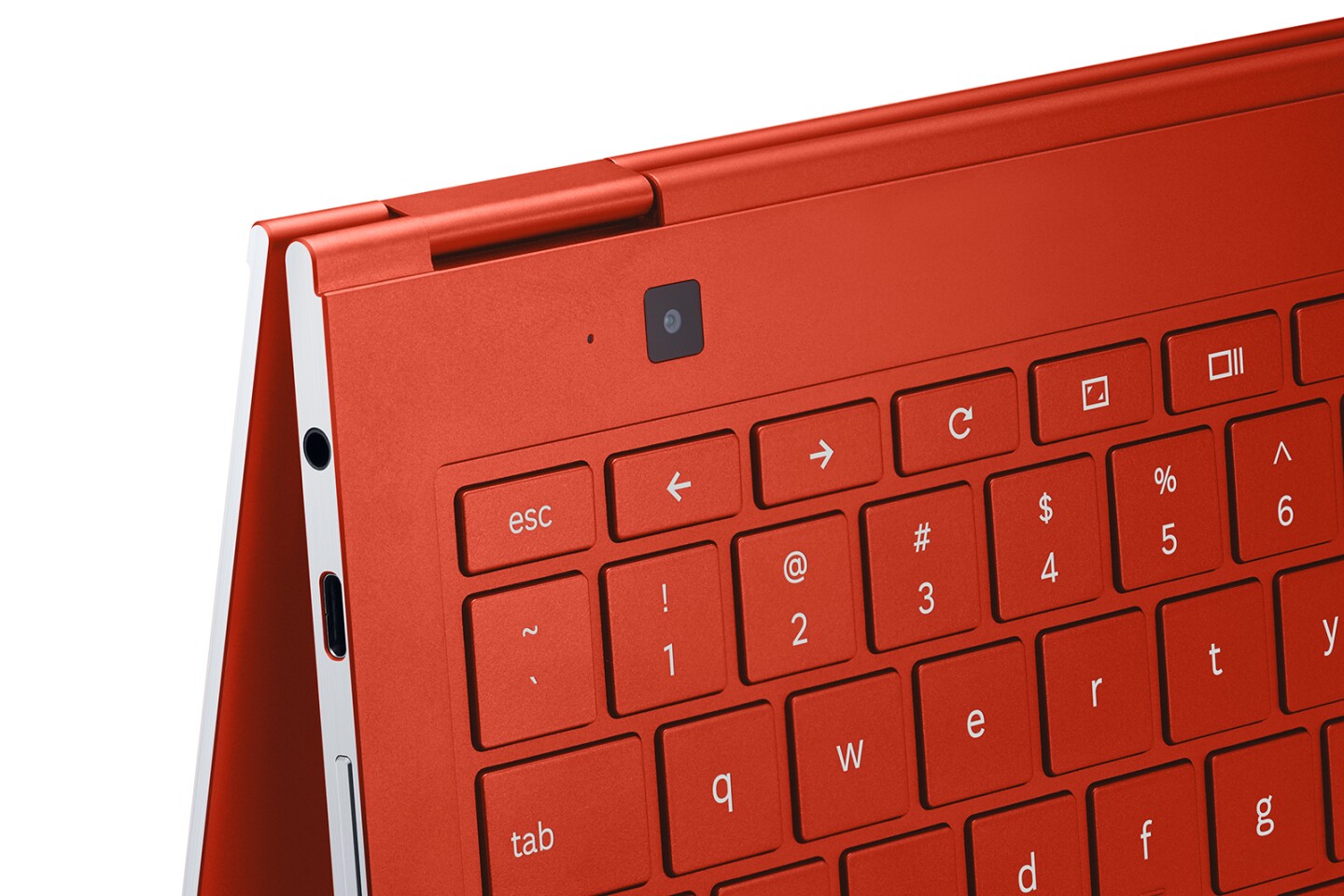Since it made its debut at the end of 2017, the Google Pixelbook has generally been considered the high-end Chromebook to beat – but that might have just changed with the launch of the Samsung Galaxy Chromebook at CES 2020.
Chromebooks don't necessarily need high-powered components – they essentially just run the Chrome browser and a few Android apps on the side – but the Galaxy Chromebook goes all-in on top-end specs.
For a start there's a 13.3-inch 4K UHD touchscreen display, using Samsung's superb-looking AMOLED screen technology and running at a resolution of 3,840 x 2,160 pixels (that's an aspect ratio of 16:9). HDR support is going to be arriving in a future software update, Samsung says.

Under the hood you've got a choice of 10th-gen Intel Core processors, up to 16 GB of RAM, and up to 1 TB of SSD storage – a specs list that is more than respectable for a normal Windows laptop, let alone one running Chrome OS.
The Galaxy Chromebook looks the part too, with neat and clear edges, thin display bezels, and an overall thickness of 9.9 mm (0.39 in) when closed. As with many Chromebooks on the market, the display can be flipped over to work as a makeshift tablet, and a stylus comes included with the laptop (and slots inside the aluminum casing when not in use).
Samsung is promising tight integration with Galaxy phones for sending messages and making calls with the Chromebook, and the laptop has all the usual Chrome OS features – automatic updating and built-in security, instant backups, and so on. Samsung says the battery will last for around eight hours between charges.

Judging by the photos Samsung has put out, and by the reaction of those who've used the Chromebook at the CES 2020 show, this is a premium Chromebook Samsung can be proud of. Chrome OS is a lightweight operating system, but that extra power helps in loading up apps faster, working with larger files, and generally racing through everyday tasks.
The Samsung Galaxy Chromebook is available in Mercury Gray as well as the Fiesta Red shown in the pictures here. Prices start at US$999.99 for 8 GB of RAM, 128 GB of storage and an Intel i5 Core processor when the laptop goes on sale in the first quarter of 2020 – that's on the expensive side, but if you're sure Chrome OS is for you, this is already one of the best Chromebooks of 2020.
Source: Samsung








